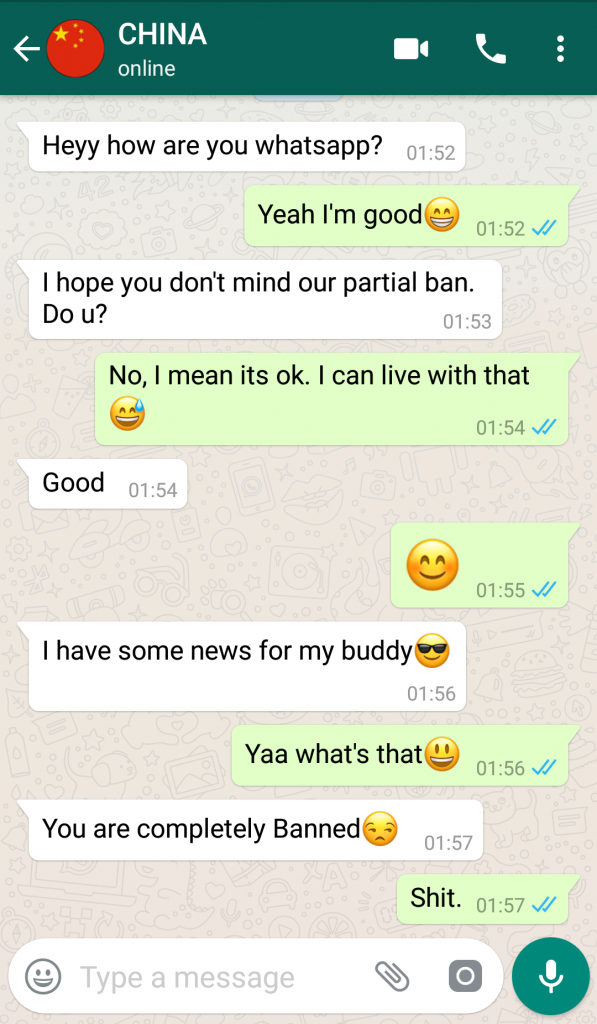
What’s common between Google, Facebook, Twitter, Instagram, Pinterest, Tumblr, Snapchat, WordPress.com, Blogspot, Flickr, and Hangouts?
China has banned them all. And now WhatsApp has also joined the list.
The world’s largest cross-platform messaging service has now been blocked in the world’s largest smartphone market. WhatsApp has experienced a series of temporary disruptions. Users were unable to send photos and videos for a certain period. Now, even text messages are disallowed. It’s the latest move by Beijing ahead of a big Communist event scheduled next month.
Heat was on WhatsApp since July
Around the middle of July, China started blocking certain features of the WhatsApp. This includes video calls, photo-sharing, and even voice chats, but the ability to send texts remained. After a few weeks, restrictions were lifted from the video, audio, and photos, but only temporarily.
Why Another Ban?
Chinese authorities appear to ban the app to tighten censorship as they prepare for a major Communist Party congress next month.
WhatsApp provides message encryption technology that likely does not please Chinese authorities. They closely monitor and restrict cyberspace through their “Great Firewall”. The New York Times opines that WhatsApp’s strong encryption technology might have drawn the attention of Chinese censors. WhatsApp messages are encrypted end-to-end, which means that the service itself doesn’t know the content of messages. So it can’t turn them over when asked by a government.

The move is a blow to Facebook, which owns WhatsApp and is banned in China since 2009. It has been trying all its might to enter the Chinese market but has continuously failed. With the blocking of WhatsApp, Facebook’s only remaining stake in China is the Colorful Balloons app. Facebook stealthily released the app last month.
VPNs ain’t any good
In July, Apple removed software allowing internet users to skirt China’s Great Firewall from its app store in the country. It drew criticism that it was bowing to Beijing’s ever-growing web censorship. Such software, called Virtual private networks (VPN), allow people in China to access any website. VPNs make it easy to visit blocked websites too. Beijing mandated in January that all developers must obtain government licenses to offer VPNs. And there has been concern that it might ban them outright.
As a result, a majority of people are switching to the local alternative called WeChat. A local internet behemoth called Tencent owns and operates it.
“I can live without the others, but blocking WhatsApp is driving me crazy,” said a person on Weibo, China’s Twitter-like app. WhatsApp declined to comment.
